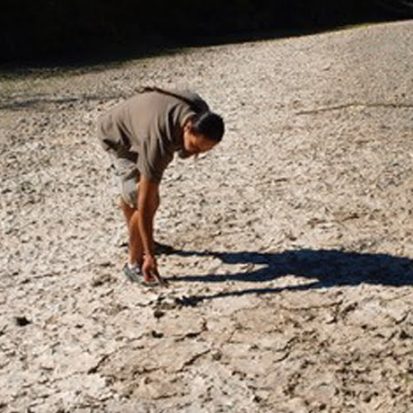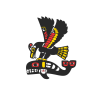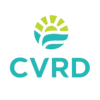
We want seasonal flows throughout the Cowichan-Koksilah watershed to support the needs of communities and aquatic ecosystems.
Indicators
Water reserves in Cowichan Lake are managed such that the rate of flow into the Cowichan River meets the soft targets established in the Cowichan Water Use Plan (2018), delivering, at minimum, the following flow regime:
- March & April: 25 cubic meters/second
- May 1 - June 15: 15 cubic meters/second
- June 15 - arrival of fall rain: 7 cubic meters/second
The Koksilah watershed is managed so as to deliver rates of flow defined as required Environmental flows (E-flows) as per Water Sustainability Planning process currently underway.
[updated 2023]
Rationale
Adequate spring, summer and fall flows in the Cowichan River are essential to ensure a healthy ecosystem and healthy communities in the Cowichan Valley. However, natural water flows, once balanced by our climate, forests, and wetlands, have changed dramatically in 100 years. A reduced snowpack and less rainfall during the summer in recent years means that a new water strategy is required through increased lake water storage. According to recent climate studies by University of Victoria, average summer inflows at Cowichan Lake have declined by 35 per cent between 1955 and 2008 – and this trend is continuing and accelerating.
Healthy flows benefit human communities providing jobs, through industries such as the Crofton mill; locally-grown food; an efficient way to dilute sewage effluent; and recreation and tourism activities, including swimming, kayaking and tubing. In addition, the river must maintain certain minimal levels of flow at various times of year for salmon and the aquatic ecosystem they depend on to thrive. A complex schedule of flows is needed by various fish species throughout the life cycle from egg to returning spawner.
_________
[Last updated 2018. See Weir Ready and Koksilah Project pages for Water Flows updates ]
Progress
To revisit earlier findings, in 2016 the Fish and Flows Working Group convened an expert panel to consider optimal flow rates for fish health. This panel included representatives from Cowichan Tribes, federal and provincial governments, the BC Conservation Foundation and recreational fisheries. The year-long process, coordinated by biologist Cheri Ayers, set up a target flow model for the Cowichan River, referring to ideal conditions for salmon at all life stages, as well as indicating minimum flows, below which salmon health can be harmed. This foundational work supported the next step - a multi-stakeholder water use planning process for the Cowichan River, directed at developing a strategy to ensure sustainable spring and summer flows for future generations. This process was led by a steering committee with representation from CVRD, Catalyst, Cowichan Tribes and the CWB, and completed in the spring of 2018 with a consensus recommendation of increasing storage in Cowichan Lake by 70 centimeters in a two phased approach in order to address the concerns of all stakeholders. The CWB is now working with partners towards implementation of the recommendations of the Cowichan Water Use Plan
In the Koksilah watershed, which joins the Cowichan watershed at the estuary, the CWB has also successfully engaged the province in monitoring extreme low summer flows to protect critical environmental flows. The CWB is facilitating efforts to support Koksilah watershed water users, particularly large farms, to continue to be profitable with more scarce water resources, including looking for incentives for investing in more efficient watering systems and/or increased water storage.
Monitoring
River flows and lake levels in the Cowichan are closely monitored by a variety of partners. Catalyst Paper, who holds the water storage license associated with the weir, monitors lake levels, with the Water Survey of Canada operating two gauging stations on the river. There are also similar gauging stations on two of the major Cowichan Lake tributaries, Cottonwood creek and Shaw creek. During the spring, summer and fall months the information from these monitoring stations is presented and discussed weekly on a conference call hosted by Catalyst and attended by representatives from all levels of government, Cowichan Tribes, the CWB and stewardship organizations. Recommendations for flow adjustments generated from these conversations are forwarded to the water comptroller. In recent years however, there have been no “good solutions” to summer and fall flow concerns as there is simply not enough water.
Increased monitoring efforts in the Koksilah River are also providing data to inform the tough water management decisions required to balance environmental needs with those of water users.
Next Steps
- Facilitate process to identify conservation water license holder and support the application process
- Help secure funding for weir replacement feasibility and design studies
- Funding and construction of new Cowichan Lake weir as per Water Use Plan recommendations
- Resolution of outstanding stakeholder concerns to allow for utilization of full storage capacity
- Continue partnering with FLNRO on a flow monitoring regime and response for Koksilah River
Relevant Resources
Weir Ready! (RE information about the Cowichan Lake weir replacement initiative)
Lake-Cowichan-Review-with-CWB-Sept-24-2018
CWBLicensingProcess2019FLNRODavidRobinson2019-05
20190729-CWB-Koksilah Drought Update_FLNRO
CLRSS_KenTraynor photos of lake level measurements
Cowichan Lake Pumping Weekly Report 1 - Sep1-7
Cowichan Lake Pumping Weekly Report 2 - Sep8-13
Cowichan Lake Pumping Weekly Report 3 - Sep14-20
Lake-Cowichan-Review-with-CWB-Sept-24-2018
Cowichan-Chinook-and-water-Apr2015-Luedke
Agriculture_Water_Demand_Model-Cowichan_Report_Agriculture_Canada-Jun2013
AreaAgriculturePlan-for-CowichanWatershedBoard-03June2010
111102_CowichanValleyWatershedBoardGWStudyUpdate
CowichanWatershedBoard-RuleCurve-20110407a
Motivators-for-CowichanWaterSupplyImprovement-JCW-27-01-12
CowichanWatershedBoard-TargetSetting-07Apr2011
CowichanWatershedBoard-RuleCurve-20110407a
Presentation-CowichanLake-WaterManagement-CraigSutherland-Results-July2010
Flows-for-Fish-SDM-Report-Update-13Sep2017
InflowsIntoCowichanLake-May2010
LowerCowichan-KoksilahRiverIntegratedFloodManagementPlan-FinalReport-Sept2009
 Email
Email



